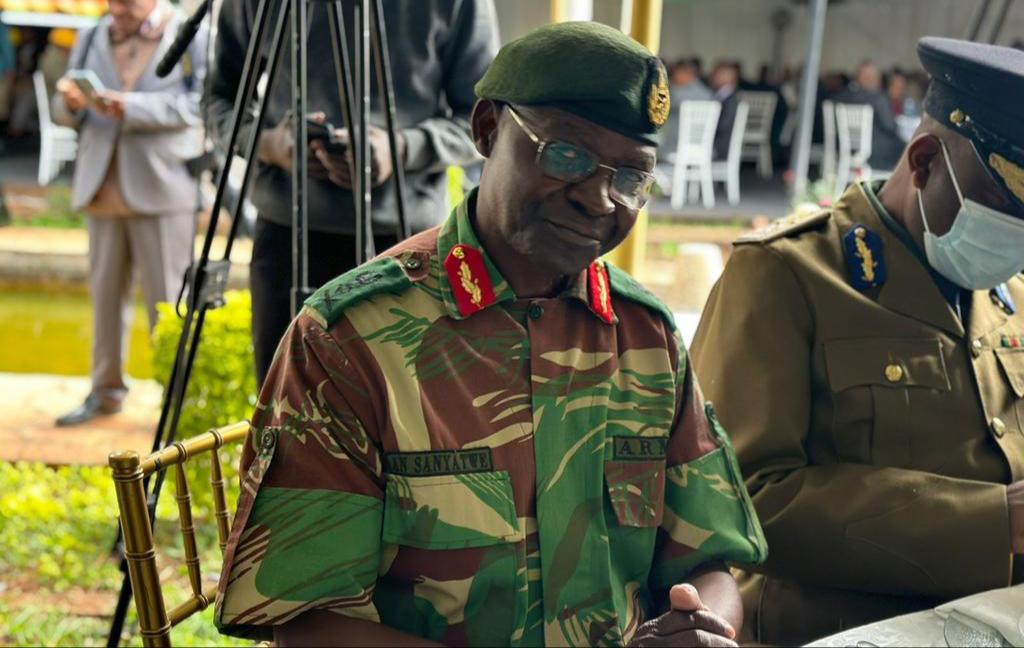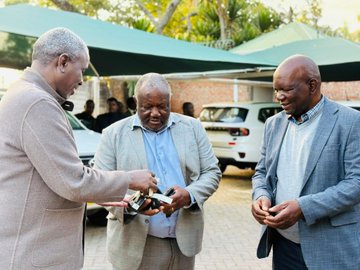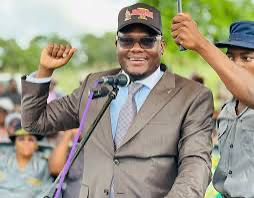By Staff Reporter
Harare – Unimpeachable military and government sources have revealed that Zimbabwe National Army (ZNA) commander Lieutenant General Anselem Sanyatwe, will defy president Emmerson Mnangagwa’s directive to take up the Sport, Recreation, Arts and Culture ministry, opting instead to remain in his post as the nation’s top security forces chief.
The move, which has plunged the ruling Zanu PF into fresh turmoil, is rooted in constitutional and legal objections, with experts warning that Sanyatwe’s purported retirement is procedurally flawed and politically motivated.
Highly placed sources within both the military and government confirm that Sanyatwe’s resistance stems from the fact that his reassignment violates Section 216(2) of the Constitution, which mandates that presidential actions concerning military command must strictly adhere to constitutional and legal processes.
No parliamentary notification or official gazette has been issued to formalize his retirement, which legal pundits argue renders Mnangagwa’s announcement legally unenforceable.
Highly placed sources allege that Sanyatwe held a high-stakes meeting with security chiefs following President Mnangagwa’s Tuesday announcement—delivered by his Chief Secretary to the President and Cabinet, Martin Rushwaya—declaring Sanyatwe’s retirement.
Furthermore, Section 208(2) explicitly bars serving security officers from holding partisan political roles, meaning Sanyatwe cannot lawfully assume a ministerial position without first retiring from the army, a process that has not been completed.
Constitutional lawyers are already preparing to challenge the legality of Sanyatwe’s retirement, arguing that the move is a thinly veiled attempt to weaken vice president Constantino Chiwenga’s influence within the military and broader political arena.
Sources within Zanu PF’s competing factions confirm that the decision is part of a broader strategy to sideline Chiwenga’s allies ahead of Mnangagwa’s controversial Agenda 2030, which seeks to extend his rule beyond the constitutionally mandated 2028 limit.
Chiwenga’s supporters, many of whom are high-ranking military officials, view this as a direct assault on his presidential ambitions and have vowed to resist.
The Defence Act further complicates Mnangagwa’s move, as Section 15(1) and (3) stipulate that military retirements require parliamentary notification and a formal handover to a successor, neither of which has occurred.
Legal experts cite precedent-setting cases, including Mugabe v. Commander of the Air Force (1998) and Tsvangirai v. Registrar General (2002), which affirm that any executive action taken outside statutory procedures is null and void.
The standoff has intensified factional warfare within Zanu PF, with insiders warning that “the gloves are now off” in the battle for succession.
The military’s loyalty, long a decisive factor in Zimbabwean politics, is now a focal point of contention, with Sanyatwe’s defiance signaling open resistance to Mnangagwa’s consolidation efforts.
Observers warn that the crisis could trigger broader instability, particularly as Chiwenga’s backers push back against what they perceive as an unconstitutional power grab.
With legal challenges imminent and the military’s chain of command in question, Zimbabwe faces a defining moment in its political trajectory.
The coming days will test whether Mnangagwa’s authority can withstand both constitutional scrutiny and the escalating power struggle within his own ranks.




